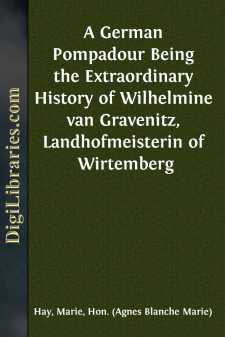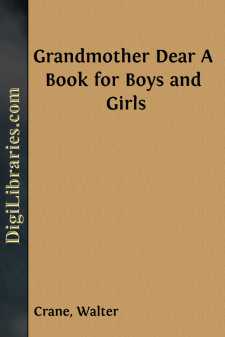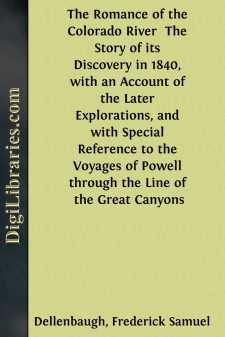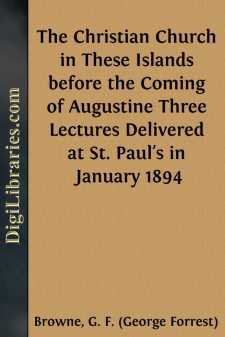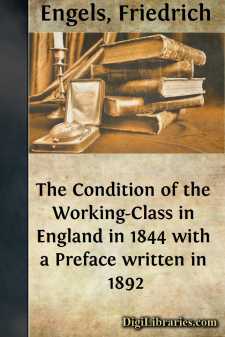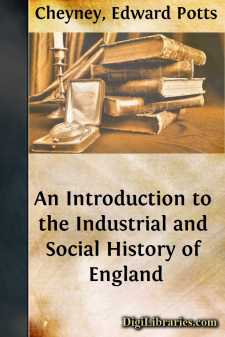Categories
- Antiques & Collectibles 13
- Architecture 36
- Art 48
- Bibles 22
- Biography & Autobiography 813
- Body, Mind & Spirit 142
- Business & Economics 28
- Children's Books 13
- Children's Fiction 10
- Computers 4
- Cooking 94
- Crafts & Hobbies 4
- Drama 346
- Education 46
- Family & Relationships 57
- Fiction 11828
- Games 19
- Gardening 17
- Health & Fitness 34
- History 1377
- House & Home 1
- Humor 147
- Juvenile Fiction 1873
- Juvenile Nonfiction 202
- Language Arts & Disciplines 88
- Law 16
- Literary Collections 686
- Literary Criticism 179
- Mathematics 13
- Medical 41
- Music 40
- Nature 179
- Non-Classifiable 1768
- Performing Arts 7
- Periodicals 1453
- Philosophy 64
- Photography 2
- Poetry 896
- Political Science 203
- Psychology 42
- Reference 154
- Religion 513
- Science 126
- Self-Help 84
- Social Science 81
- Sports & Recreation 34
- Study Aids 3
- Technology & Engineering 59
- Transportation 23
- Travel 463
- True Crime 29
Sort by:
PREFACE 'The Past that is not overpast, But present here.' In a dusty, time-soiled packet of legal papers which had lain untouched for nigh upon two hundred years, the extraordinary history of Wilhelmine von Grävenitz is set forth in all the colourless reticence of official documents. And yet something of the thrill of the superstitious fear, and the virtuous disapproval of the lawyers who...
more...
by:
Walter Crane
MAKING FRIENDS."Good onset bodes good end."Spenser. "Well?" said Ralph. "Well?" said Sylvia. "Well?" said Molly. Then they all three stood and looked at each other. Each had his or her own opinion on the subject which was uppermost in their minds, but each was equally reluctant to express it, till that of the others had been got at. So each of the three said...
more...
CHAPTER I. The Secret of the Gulf—Ulloa, 1539, One of the Captains of Cortes, Almost Solves it, but Turns Back without Discovering—Alarcon, 1540, Conquers. In every country the great, rivers have presented attractive pathways for interior exploration—gateways for settlement. Eventually they have grown to be highroads where the rich cargoes of development, profiting by favouring tides, floated to...
more...
Chapter I. Of Cornet Joseph Clarke of the Ironsides It may be, my dear grandchildren, that at one time or another I have told you nearly all the incidents which have occurred during my adventurous life. To your father and to your mother, at least, I know that none of them are unfamiliar. Yet when I consider that time wears on, and that a grey head is apt to contain a failing memory, I am prompted to...
more...
LECTURE I. Importance of the anniversaries connected with the years 1894-1897.—Christianity in Kent immediately before Augustine.—Dates of Bishop Luidhard and Queen Bertha.—Romano-British Churches in Canterbury.—Who were the Britons.—Traditional origin of British Christianity.—St. Paul.—Joseph of Arimathea.—Glastonbury.—Roman references to Britain. We are approaching an anniversary of...
more...
by:
Friedrich Engels
INTRODUCTION The history of the proletariat in England begins with the second half of the last century, with the invention of the steam-engine and of machinery for working cotton. These inventions gave rise, as is well known, to an industrial revolution, a revolution which altered the whole civil society; one, the historical importance of which is only now beginning to be recognised. England is the...
more...
by:
George Berkeley
Part I Query 1. Whether there ever was, is, or will be, an industrious nation poor, or an idle rich? 2. Qu. Whether a people can be called poor, where the common sort are well fed, clothed, and lodged? 3. Qu. Whether the drift and aim of every wise State should not be, to encourage industry in its members? And whether those who employ neither heads nor hands for the common benefit deserve not to be...
more...
by:
William Black
CHAPTER I. SINGING SAL. On a certain golden afternoon in August, when the sea was as still and radiant as the vaulted blue overhead, and when the earth was lying so hushed and silent that you would have thought it was listening for the chirp of the small birds among the gorse, a young girl of about seventeen or so was walking over the downs that undulate, wave on wave, from Newhaven all along the coast...
more...
CHAPTER I PAUL KEGWORTHY lived with his mother, Mrs. Button, his stepfather, Mr. Button, and six little Buttons, his half brothers and sisters. His was not an ideal home; it consisted in a bedroom, a kitchen and a scullery in a grimy little house in a grimy street made up of rows of exactly similar grimy little houses, and forming one of a hundred similar streets in a northern manufacturing town. Mr....
more...
GROWTH OF THE NATION To the Middle of the Fourteenth Century —The British Isles lie northwest of the Continent of Europe. They are separated from it by the Channel and the North Sea, at the narrowest only twenty miles wide, and at the broadest not more than three hundred. The greatest length of England from north to south is three hundred and sixty-five miles, and its greatest breadth some two...
more...


